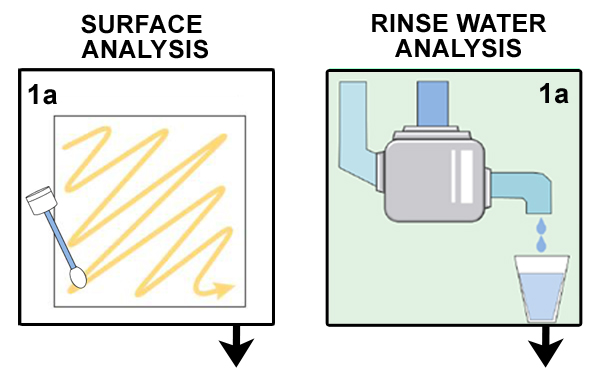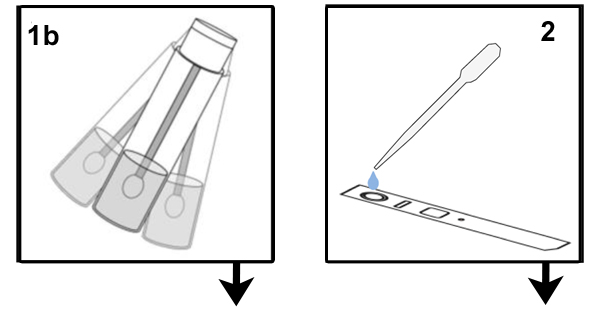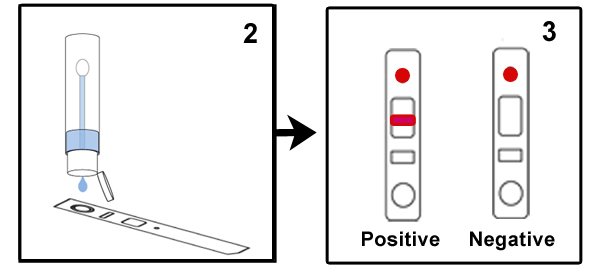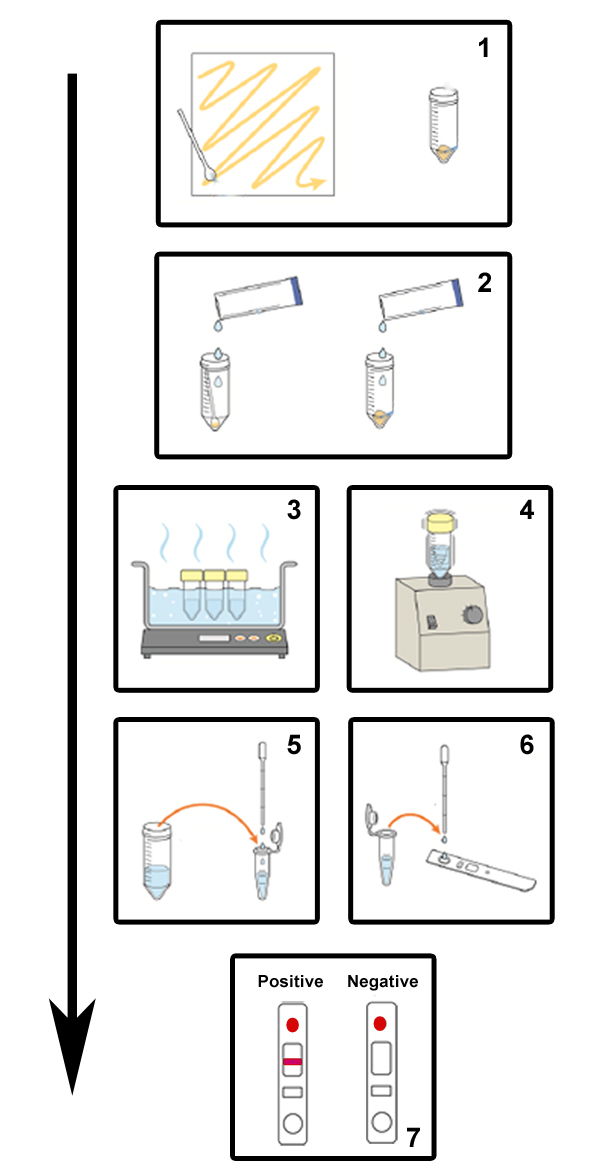Picking the Right Allergen Kit for Your Application
Crystal Chem offers innovative testing kits for the detection of allergens in food, rinse water, and on surfaces. The kits are manufactured by Morinaga Institute and utilize proprietary extraction solutions, and highly sensitive antibodies to effectively measure a range of wheat (buckwheat, gluten, gliadin), egg (ovalbumin), milk (casein, beta-lactoglobulin), soy, and peanut proteins from raw or processed foods.
Unlike competitors' kits, Morinaga's kits can detect both native and denatured proteins found in both raw and processed foods. Using a unique approach, the native proteins in your sample are first denatured, and then antibodies are used that bind specifically to the denatured proteins making the kits an ideal way to detect all the protein (allergen) in raw and processed foods.
We offer several options to detect allergens in your specific application:
Quantitative Testing: For raw and processed foods.
Qualitative or Semi-Quantitative Testing:The Rapid Test Easy and Rapid Test Pro II Kits use lateral flow methods to offer quick, and easy, ways to verify the absence or presence of allergens or allergen residues.
- Rapid Test Easy Kits: For soluble proteins from rinse water or on surfaces.
- Rapid Test Pro II Kits: For less soluble proteins including those in raw and processed food.
Review the individual product pages for more information or review some recent publications.
| View all our kits |
ELISA Kits
For accurate quantification of allergens, we offer ELISA kits.
The kits each are capable of running 96 tests and incorporate Morinaga's innovative extraction method to achieve high recovery of allergen proteins in both raw and processed foods.
We offer both the original versions of the kits, as well as, the new and updated version of the kits. The newly updated kits offer the same great quality of the original kits without the need for added β-mercaptoethanol.
Product Offerings
| Standard ELISA Kit | Updated Type II ELISA Kit |
|
|
Rapid Test Easy Kits
For qualitative or semi-quantitative measurement of soluble allergens or for rinse water analysis, we offer the Rapid Test Easy Kit product line for Casein, Egg, Soy, and Gluten.
| 1. First rinse water is collected or the surface is swabbed. For swab tests, material is extracted from the swab by mixing in a solution of buffer. |  |
| 2. Samples from the rinse water or buffer solution are added to the test stick. |  |
| 3. The results are read in 10 minutes. A red line in the test window indicates a positive test for the target allergen. |  |
Product Offerings
Rapid Test Pro II Kits
For qualitative or semi-quantitative measurement of less soluble proteins, typically found in raw or processed food, we offer the Rapid Test Pro II Kit product line for Buckwheat, Casein, Egg, Gluten, and Peanut.
|
1. For surface testing, a moist swab is used to collect a sample from the test area. For food samples, 1 g of ground food is added to the supplied 50 mL tube. |
 |
Product Offerings
| 1) | Panda, Rakhi, et al. "Detection and Quantification of Gluten during the Brewing and Fermentation of Beer Using Antibody-Based Technologies." Journal of Food Protection 78 (2015), 1167-1177. “The sensitivity of the MIoBS [Morinaga] ELISA (0.25 ppm) enabled the reliable detection of gluten throughout the manufacturing process, including fermentation, when the initial concentration of 20 μg/ml dropped to 2 μg/ml. The R5 antibody–based and G12 antibody–based sandwich ELISAs were unable to reliably detect gluten, initially at 20 μg/ml, after the onset of production..”
See article |
| 2) | Fste, Christiane K., et al. "Extractability, stability, and allergenicity of egg white proteins in differently heat-processed foods." Journal of AOAC International 90.2 (2007): 427-436 “The Ridascreen assay detected egg protein only in nonprocessed samples but did not perform well with the untreated pasta matrix. Results obtained with the BioKits assay showed a dependency on the kind of heat processing performed. The amount of egg protein measured decreased with increasing temperature…Unlike the other 2 assays, the Morinaga kit recovered a constant, process-independent amount of egg protein from all matrixes.”
See article |
| 3) | Parker, Christine H., et al. "Multi-allergen Quantitation and the Impact of Thermal Treatment in Industry-Processed Baked Goods by ELISA and Liquid Chromatography-Tandem Mass Spectrometry" Journal of Agricultural and Food Chemistry 63 (2015): 10669-10680 “...whereas some commercial ELISA kits were not able to accurately determine the amount of protein present in thermally processed foods due to heat-induced changes in the solubility and immunoreactivity of target proteins, other kits (i.e., Morinaga) appeared to perform better under thermal processing conditions for examined allergens egg, milk, and peanut.
See article |

 Australia
Australia
 Austria
Austria
 Bangladesh
Bangladesh
 Belgium
Belgium
 Brazil
Brazil
 Canada
Canada
 China
China
 Denmark
Denmark
 Finland
Finland
 France
France
 Germany
Germany
 Greece
Greece
 Hong Kong
Hong Kong
 India
India
 Ireland
Ireland
 Israel
Israel
 Italy
Italy
 Japan
Japan
 Malaysia
Malaysia
 Mexico
Mexico
 Netherlands
Netherlands
 New Zealand
New Zealand
 Norway
Norway
 Pakistan
Pakistan
 Singapore
Singapore
 South Korea
South Korea
 Spain
Spain
 Sweden
Sweden
 Switzerland
Switzerland
 Taiwan
Taiwan
 United Kingdom
United Kingdom